|
Growing up in a large Catholic family gave me the opportunity to interact with the Catholic Church’s love for Mary and the Saints. However, looking back just recently, it is no surprise that my appreciation of Mary came to being as I grew in a deeper appreciation of my own mother. I tell people that I would be content if I were a fraction of the person that she is. While I could go on forever about how wonderful my mother is, I’ll limit myself to just sharing one characteristic of her that I think is crucial for understanding and appreciating Mary as the Mother of God: when I go to my mom for advice, she will always end the conversation suggesting that I pray about it and ask God for the necessary virtues to make an action or decision. By asking me to pray about it, she helps me direct my attention toward Christ.
You may or may not have this same experience with your own mothers, but Mary is the Mother of God, making her Our Mother as well. We all have the opportunity to approach Mary’s open arms in the hope of receiving her comfort and love. But even more importantly, she is able to point us to Christ, to encourage us to grow our relationship with her Son. Look at scripture and you can see where Mary helps guide people to Christ. In particular, look at the Wedding at Cana, for instance, in John 2. Mary and Jesus were at a wedding, and the hosts ran out of wine. Mary went to Jesus and told him that they were out of wine and were in need of more. Jesus responded to her, "Woman, what is that to me and to you? My hour is not yet come." Mary did not really respond to this. Instead, she went to the waiters and told them, "Do whatever He tells you." Her remark shows that she knew that He was about to perform a miracle. She knew that he would fulfill her request. Jesus instructed the servants to fill some huge jugs with water. Because of Mary's advice they obeyed. Think about this now: Mary told Christ what the servants needed, and she then immediately told the servants to do as Jesus tells him. Does Mary not tell Christ our needs, and then instructs us to do as her Son instructs us to do? By going to our Blessed Mother, Mary can help us follow the path to Christ the way she helped the servants obey Jesus. Like the Wedding at Cana, she will tell her Son our needs and then, pointing to her Son, tell us to do as He instructs us. Mary not only directs us towards Christ. Our hearts yearn to be like Mary. This is because Mary fulfilled God’s invitation of perfect love, which allows her to become the person she was meant to be. We have that same calling. While we will not achieve this goal in absolute perfection the way Mary did, we can look to Mary as our human role model for true, authentic Christian love towards God and towards our fellow human being. Mary, being the New Eve of Creation, can directly link us to God. Think about this, if Mary directly brought Christ to the world, then would she directly bring us to Christ through prayer? She is our direct route to growing closer in Christ, as she knew Christ better than anyone else. So maybe like some of our own earthly mothers, Mary is our role model and our guide towards holiness. Andrew St. Hilaire is the Assistant to the Director of the Catholic Apostolate Center
1 Comment
Ever since I was a little kid, I have loved Midnight Mass. As a student of the Church's liturgy, some of the externals certainly contribute to this: darkness, incense, singing, a full church. Yesterday was no different. The outside air was cold, the church full, the music beautiful as always. With the exception of a blaring fire alarm because of of a smoking thurible being placed too close to a sensitive smoke detector, Mass went off without a hitch!
But why do we gather in the middle of the night on one of the longest nights of the year? Why do we celebrate this great solemnity year after year? What can we continue to learn from "Jesus Christ, eternal God and Son of the eternal Father...born in Bethlehem of Judea of the Virgin Mary" (Proclamation of the Birth of Christ)? The collect (opening prayer) from the "Mass during the Night" beautifully illustrates the reason that we gather on that holy night: O God, who have made this most sacred night radiant with the splendor of the true light, grant, we pray, that we, who have known the mysteries of his light on earth, may also delight in his gladness in heaven. God's light came to earth as an infant over two thousand years ago. The Incarnation is miracle and pure gift, but it is also human. "Et Verbum caro factum est et habitavit in nobis—And the Word became flesh and dwelt among us." The Word, Christ himself, was, as the Nicene Creed says, "incarnate of the Virgin Mary and became man." In his Midnight Mass homily, Pope Francis said, "The grace which was revealed in our world is Jesus, born of the Virgin Mary, true man and true God. He has entered our history; he has shared our journey." Emmanuel, God with us, was born in a manger fully human and fully God. Jesus Christ is not some distant, historical figure. He experienced the joys and sorrows of daily living just as we do today, and is as alive today as he was in Bethlehem two thousand years ago. As we celebrate the octave of Christmas, let us not forget the great miracle of the Incarnation of the light of the world. "The Word became flesh, and we have seen his glory" (John 1:14). May the glory and joy of Christmas remain alive in our hearts and in our lives today and every day. Alex R. Boucher is the Program & Operations Manager for the Catholic Apostolate Center. Follow Alex on Twitter at @AlexBoucher. Tomorrow, we arrive at Christmas Eve. In the rush of all of the “things we must do” do we stop and reflect on the one who is the true must for us, the Incarnate Son of God, Our Lord Jesus Christ? Stop for a moment and look at a Nativity scene. I mean really look. What do you see? Do you see simply art, or a depiction of a past event, or do you see the one who is the Incarnate Son of God? Our God, who created us, came to us, is with us, is for us, to save us! We are not alone in the vast universe, left adrift. No, our God came to us in a way that we would not expect of one who is all-powerful, he came in the innocent helplessness of a baby. This baby was not born in a palace or even a house, but in a borrowed spot out back where only animals lived. The first people who visited him and his parents were not friends and family, but poor shepherds. The King of Kings came as the Poorest of the Poor. He came to save us not just in the future, but now. We are to assist him in his mission as the third verse of the
Christmas carol “O Holy Night” tells us: Truly He taught us to love one another; His law is love and His gospel is peace. Chains shall He break for the slave is our brother; And in His name all oppression shall cease. Sweet hymns of joy in grateful chorus raise we, Let all within us praise His holy name. Like the shepherds and all who have gone before us in faith, our encounter with the Prince of Peace offers us the opportunity to be freed from all that oppresses us in life and the mandate to help others to find this freedom. As Pope Francis teaches us: “The joy of the gospel fills the hearts and lives of all who encounter Jesus. Those who accept his offer of salvation are set free from sin, sorrow, inner emptiness and loneliness. With Christ joy is constantly born anew… I invite all Christians, everywhere, at this very moment, to a renewed personal encounter with Jesus Christ, or at least an openness to letting him encounter them; I ask all of you to do this unfailingly each day. No one should think that this invitation is not meant for him or her, since “no one is excluded from the joy brought by the Lord.” (Evangelii Gaudium, 1, 3). This Christmas and always, our prayer as the team of the Catholic Apostolate Center is that your encounter with Christ today and every day brings such joy that you must share it with all! Blessed Christmas! Fr. Frank Donio, S.A.C. is the Director of the Catholic Apostolate Center This Sunday is the Fourth Sunday of Advent, the last Sunday before we celebrate the birth of Christ at Christmas. These four weeks are an opportunity for us as Catholics to take time to reflect on our spiritual lives. As we’ve seen in posts throughout this Advent season, we must look at Advent as a journey, both as a time to prepare for Christ’s coming this year, but also as a way of looking at the future to prepare for Christ’s second coming. Advent is a time filled with joy and introspection, where we strive to find the quiet moments within a busy season.
This Sunday, the first reading from Isaiah tells of the eventual birth of Christ. Isaiah prophecies that the Lord will give mankind a sign, a son born of a virgin mother, to be called Emmanuel. St. Paul, in the second reading, reminds us that Christ was put here on earth “as Son of God in power, according to the Spirit of holiness. (Isaiah 1:4) Then in the gospel reading from St. Matthew, we hear the story of the nativity, referencing the fulfillment of Isaiah’s words. Here it is reiterated that Christ will be called Emmanuel, which means “God is with us.” This is a good reminder at the conclusion of the Advent season. The gospel tells us that Christ’s coming is the true manifestation of God here on earth, and the name Emmanuel is a literal representation of this. The name Emmanuel is also a reminder to all of us that God is with us, even now in our everyday lives. It is easy during Advent or other important liturgical seasons to feel God’s presence more strongly. During the Christmas season we hear stories of incredible generosity and kindness, many in the name of Christmas spirit. Food banks and Homeless Shelters and other social welfare institutions report higher donations and volunteers during the holidays. Generosity and volunteering of time is always a rewarding way to live out the gospel, but to truly embrace the spirit of Christ as Emmanuel, we must do our best to keep God with us throughout the entire year, not just during holiday seasons. Pope Francis’s message of the importance of ministering to the poor and marginalized is applicable here especially. The Holy Father encourages us to see the face of God in everyone, especially in those who are most in need. We must remember that God is with us, in every aspect of our life, and we must strive to carry the spirit of kindness and generosity throughout the whole year. Rebecca Ruesch is the Blog Editor for the Catholic Apostolate Center Waiting. Who likes to wait? As far as I can remember, I have never been very patient. I speak too fast, I start projects but often never finish them, and I tap my foot in long lines while sighing loudly so everyone can hear me. I’m very impatient, and recognize that I could always use more humility in my life. Over time and through prayer, I have begun to change my perspective. I realized that waiting can be used as a time for preparation, a chance to reflect. It can be a time to mend, a time to forgive or to be forgiven, and it can also be a time to rid my life of things that encourage an impatient lifestyle. In Advent especially, I have sometimes found it difficult to focus my attention on preparing my heart for Christ.
As Catholics, we do quite a bit of waiting, especially during Advent. It is a time to prepare our hearts and minds for the coming of Christ Himself. These four weeks help us remember why we need Jesus in our lives and in our hearts. In the past few weeks of blog posts, we have seen reflections on the journey that is Advent. But, Advent is also a time to remember that the waiting is not over on Christmas morning when we see the baby Jesus in the manger. In fact, we are in a constant state of waiting and preparation. We wait for new iPhones. We wait for a new year. Then we wait again for Christmas a year later through another Advent. But is that all we are waiting for? When we look at the big picture, we must realize that we are also waiting for Christ’s second coming. This is waiting for something that really matters, something that we need to be entirely ready for. In the Gospel of Matthew, we are reminded that “you know neither the day nor the hour” when Christ will come again. As Matthew reminds us, we need to “stay awake” and prepare for this second coming, not just during Advent but throughout the year. (Matthew 25:13). At the end of time, Jesus will come again, and seek our hearts. He wants us, wholly and fully. This Advent, we will wait for Jesus to come into the world, reminded that in Him we seek goodness. In Him, we put our trust. We leave our impatient lives and tendencies in Advent, and we enter into the celebration of Christ at Christmas. While preparing our hearts at Christmas, we are readying ourselves for the day He comes again. Will you be ready? Krissy Kirby is a Senior Early Childhood Education Major at The Catholic University of America Recently the small town in New Jersey that I have been living in for two years while doing service made its way into the national news. Unfortunately it was due to a toxic chemical spill after a train derailed about ¼ of a mile from my house. Within hours of the accident, the three other women that I live with and I were being evacuated from our home. Fortunately two alums of our program kindly opened their doors to us and welcomed us under their roof.
As the days of evacuation turned into weeks, the fun of being somewhere new changed to the reality of being displaced. Not knowing when we would be able to return home, I began, like any good theology student, making theological reflections on our condition within the current liturgical season. Being evacuated, displacement, relying on the kindness of others to welcome us in — a perfect analogy as we celebrate this season of Advent. Feeling a little like Mary and Joseph, I found myself discovering consolation in their story. Under the roof of a stranger, Mary was welcomed in. Under the roof a stranger, our savior was born. Under the roof of a stranger, God was born as man. From under the roof of a stranger, great things can come! There is more than consolation found in the connection of mystery to the season of Advent. The eschaton[1] we reflect on during Advent reminds us of the story that has happened in the past, along with the reality of Christ being present today with our hope for Christ to come again in the future. What is it that the kindness of these “strangers” welcoming me under their roof calls me to? St John of the Cross, a mystic and doctor of our Church, writes in an Advent reflection; “If you want, the virgin will come walking down the road pregnant with the holy, and say, “I need shelter for the night, please take me inside your heart, my time is so close.” Then under the roof of your soul you will witness the sublime intimacy, the divine, the Christ, taking birth forever…” We are called to welcome another under our roof: Christ. Like the alums who welcomed in my housemates and me or like the inn keeper who found room for Mary, Joseph and Jesus, we too are called to open the doors of our hearts and welcome Christ to find a home under the roof of our souls. Today, in the midst of this season of joyful anticipation, we are called to welcome Christ fully into our beings so that when he comes again He might welcome us, in return, under the roof of His Kingdom. If you want, the virgin will come walking down the road pregnant with the holy, and say, “I need shelter for the night, please take me inside your heart, my time is so close.” Then under the roof of your soul you will witness the sublime intimacy, the divine, the Christ, taking birth forever, as she grasps your hand for help, for each of us is the midwife of God, each of us. Yes there, under the dome of your being does creation come into existence eternally, through your womb, dear pilgrim- the sacred womb of your soul, as God grasps our arms for help: for each of us is his beloved servant, never far. If you want, the Virgin will come walking down the street pregnant with Light and sing. ~St. John of the Cross, Advent Reflection Pam Tremblay is the Blog Editor for the Catholic Apostolate Center. [1] Eschaton/eschatology: is the theology that deals with the end of times and the doctrine of the last things. We speak of the eschaton/eschatology in advent when we are reminded of our waiting for Christ in his second come at the end of time. I have a very distinct memory from when I was a little girl (okay, twelve years old…) of anxiously awaiting the Christmas morning tradition of opening up Christmas presents. I was so excited that instead of waiting for the parental mandated 6:15am wake up call, I did it my way. I changed the time on my alarm clock, woke up my whole family and demanded that we start Christmas a little early. This moment of impatience several years ago plays into a much larger reality about this world that we live in – we are so anxious to get to the final destination as quickly as possible that we forget that the journey is just as important as the destination.
That is what Advent is – the journey to Christmas. The word itself comes from the Latin word adventus, which means “coming.” In the midst of the craziness of the holiday season–peppermint mochas and Hallmark Christmas movies included—it is natural to feel like these weeks leading up to Christmas are all about the countdown, and not about the coming. Just as I was all too anxious and turned the clock forward to get my Christmas day started, it is easy to wish away these days of simple waiting and trade them in for the hustle and bustle of Christmas Day. In an effort to more fully appreciate this journey to December 25th, it is necessary to find ways to live out this coming in our own lives. Practically, what does this mean? It means recognizing that the Advent journey requires silence, prayer and most importantly perseverance. Although everyone loves a good peppermint mocha, it is through these three things that we can ready the way for the coming of our Lord at Christmas. Although seemingly impossible, finding silence among the chaos of these days can be done in simple ways–whether it is turning off that Josh Groban Christmas song that has been playing on repeat in the car or taking the chance to catch one’s breath between glasses of eggnog at a family Christmas party. Finding times for prayer can be as unassuming as waking up five minutes early to read that day’s Mass readings or saying a Hail Mary when we are stressed. Lastly, perseverance is not only a necessity of the Christian life, but a necessary part of a peace-filled Advent. The most beautiful part of these days before Christmas is that the destination of our journey is not a rigged alarm, but God Himself in the unassuming form of a baby. This innocence of the baby Jesus reminds us that this season is a time for simple acts of faith, acts of faith that both allow us to appreciate the gift that is waiting for us and the journey that makes it possible. Lauren Scharmer is a senior at The Catholic University of America and is active in retreat and youth ministry in both the Archdiocese of Washington and the Diocese of Arlington. Three weeks ago, I had the opportunity to attend (along with the Catholic Apostolate Center) the National Catholic Collegiate Conference in Indianapolis, Indiana. There, I participated in a presentation on what it means to be an apostle and how we are called to be active witnesses in our faith.
The entire conference was aimed at young adults in college or who just graduated. I found it amazing how there were so many young people who wanted to take the time out of their lives and come out to participate actively in their faith. The presentation was typical of similar presentations aimed at young adults, it started off slow – difficult to get answers out of them – but as soon as the conversation started to flow, it became apparent to us giving the presentation that they were there for a reason. We posed questions to them – tough ones to think about. What were the strength and weaknesses of their programs, did they need more prayer in their life, what does it mean to evangelize, where do they want to improve. It was clear that no one felt they were perfect and a lot of them knew that each issue was important, not just one over the other. Being a “young adult” myself these questions were just as important for me as they were for the participants. There was one answer to a question that stuck out for me. I asked, what does “evangelization” mean? The responses were varied, but one in particular caught my attention. One of the participants said, “Inspire.” What a beautiful thought. We know that the term evangelize or evangelization hovers around the idea of conversion or spreading the good news. But when you truly think about the idea of evangelization, are we not trying to inspire people? Are we not trying to spread the word of God and the good works of the church? Those ideas in itself are inspiring. For that to be seen by someone my age and to be so courageously brought up in front of his peers was something that I had to take note of – I returned back to that idea at the end of the presentation. Inspired myself by that young adult, I leave you with the three ideas that I left with the participants as I debriefed our presentation and activity: 1. You are not the future of the Church, you ARE the Church! Young people hear so often that they are the future of the Church, that they must be willing to step up and be the leaders of the future. The simple fact is that they (you) are already the Church – the time is now to reach out and step up to help – to spread the good news, to evangelize. 2. Do more than just follow, tell people why you’re following. It’s one thing to identify as a Catholic – we must have a deeper understanding of what it means. We must be ready to spread the word about our faith, to answer questions, and to help others understand and be inspired. 3. Be positive. This to me is a key component of evangelization – of being an apostle. We must not be quick to point out when something is wrong, instead we must look for the good in things. We have an obligation to approach all our interactions in a positive and inspiring way, not to be dismissive or confrontational. Chris Pierno is the Media & Marketing Manager for the Catholic Apostolate Center This past Sunday marked the beginning of Advent, my favorite time of year. What I love most about Advent is that it is four weeks long, and the opportunities to celebrate and prepare for Jesus’ birth are abundant. But, many people forget this. Just last Friday, people lined up at midnight outside Wal-Mart and bought everything on their Christmas list in a six hour blur of big screen T.V.s and elbows. Others rushed out to buy a Christmas tree, and decked their house in every last light they could find in the attack. And, by Friday evening, they were “done” preparing for Christmas and back to life as usual.
My own personal version of this would be when my grandma gives me one of those “Christmas Countdown Chocolate Calendars,” the ones with a piece of chocolate behind each day leading up to Christmas—and its gone by December 5th! People no longer spend all of Advent preparing for the birth of Jesus Christ, they do what needs to be done, as fast as possible, and then forget he’s coming until the 23rd. Advent is four weeks long (and so are a lot of Christmas sales!) and as difficult as it may be, we should try to keep that in mind. Instead of setting up the house or buying all the gifts in one day, spread it out! Enjoy the preparations. Do something small every day in anticipation for the birth of Christ. Make an Advent wreath with your family (or roommates!) and light a candle at dinner; say an extra prayer every evening; pray Vespers before Mass. The most important things is that we don’t fall asleep in the wait for Jesus, that we remember every day—not just when they light the Advent wreath at Mass on Sunday or when The Grinch is on TV or Wal-Mart has a big sale—that Christ is coming and we must be ready. And keep it to one piece of chocolate a day from the Advent calendar. Your stomach will thank you and you’ll have more candy toward the end of the four weeks! Eileen Welch is an undergraduate student at The Catholic University of America and is Regent of Catholic Daughters Court Catholic University |
Details
Archives
July 2024
Categories
All
|
About |
Media |
© COPYRIGHT 2024 | ALL RIGHTS RESERVED

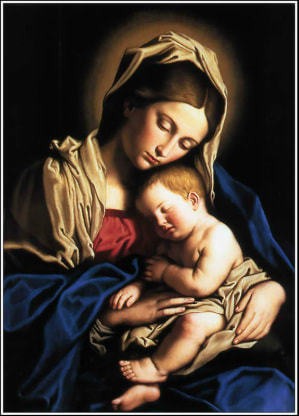
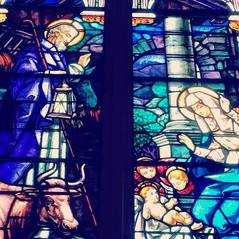
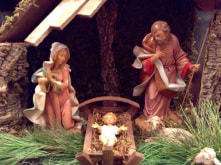
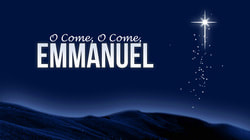



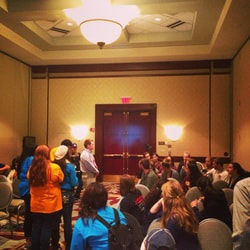

 RSS Feed
RSS Feed